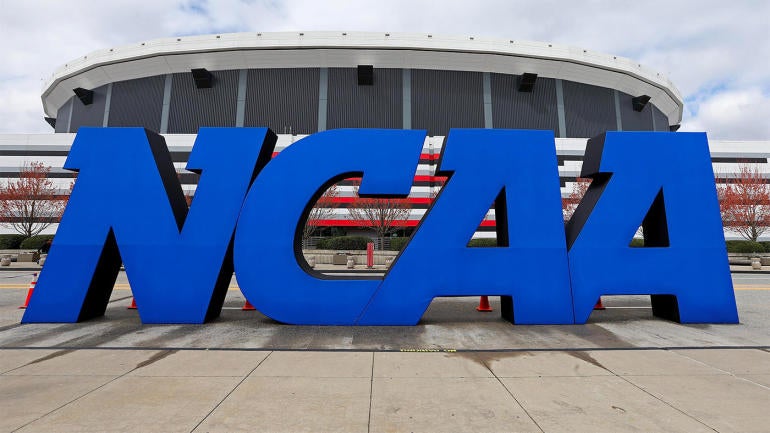
The NCAA Division I Council on Monday formally recommended that the Board of Governors adopt a name, image and likeness policy on an interim basis when it convenes Wednesday. The hope is that what amounts to a waiver will be effective until either federal legislation is passed or a more permanent NIL rule can be created by the NCAA.
The board will begin its meeting on June 30, less than 24 hours before NIL laws are enacted in at least seven states. At that time, it is likely to grant relief from existing NIL rules by setting minimal regulations that will create a "bridge" to July 1 and beyond, sources told CBS Sports' Dennis Dodd.
The goal of the waiver is to give athletes the ability to take advantage of NIL sponsorship opportunities without fear of being in violation of NCAA rules. The NCAA claims its waiver "leaves in place the commitment to avoid pay-for-play and improper inducements tied to choosing to attend a particular school" as such rules will remain part of the association's foundation.
The NCAA listed the following bullet points of consideration, creating the possibility for schools and conferences to create their own NIL policies if their states do not have any set to go into law on Thursday. The association's words are below:
- College athletes can engage in NIL activities that are consistent with the law of the state where the school is located. Colleges and universities are responsible for determining whether those activities are consistent with state law.
- Student-athletes who attend a school in a state without a NIL law can engage in this type of activity without violating NCAA rules related to name, image and likeness.
- College athletes can use a professional services provider for NIL activities.
- Student-athletes should report NIL activities consistent with state law or school and conference requirements to their school.
This move is strategic by the NCAA. The idea of a waiver is for the association to avoid enacting new rules that might be subject to lawsuits in hopes that federal legislation will be passed sooner than later.
However, such a bill may never come. Legislation being developed in the Senate already has become politicized. In general, Republicans are seeking an antitrust exemption for the NCAA, while Democrats favor long-term medical care and extended scholarships to ensure athletes earn a degree.
For the moment, the NIL waiver would temporarily resolve the NCAA's role in legislating what are going to be nearly unregulated NIL benefits. Members were increasingly nervous about that prospect after the Supreme Court highly criticized the NCAA while rendering its decision in NCAA vs. Alston.
While all three NCAA divisions will have to adopt the change through their governance processes -- Divisions II and III will vote on it Wednesday -- most of the pressure is on Division I where all the major revenue-producing schools reside. It is about to undergo fundamental change in terms of player compensation.
For the last two years, the NCAA has come around to changing the foundation of its amateurism bylaws to consider allowing athletes to be paid for commercials, endorsements, autographs and the like.
However, the NCAA has tabled formal NIL legislation since January because of multiple concerns. What has emerged is a sense of desperation within the membership as the NCAA lacked direction. Because of the wait and mounting legal questions, athletes will likely be able to get unprecedented benefits for their talents.
If the NIL waiver comes Wednesday, the relief would be put into place less than 24 hours before NIL laws go into effect on July 1 in Alabama, Florida, Georgia, Kentucky, Mississippi, New Mexico and Texas. The Oregon State Legislature also passed an NIL bill last week that is awaiting Gov. Kate Brown's signature. Nineteen states in total have passed NIL legislation, but others are not set to open the floodgates on July 1.
















